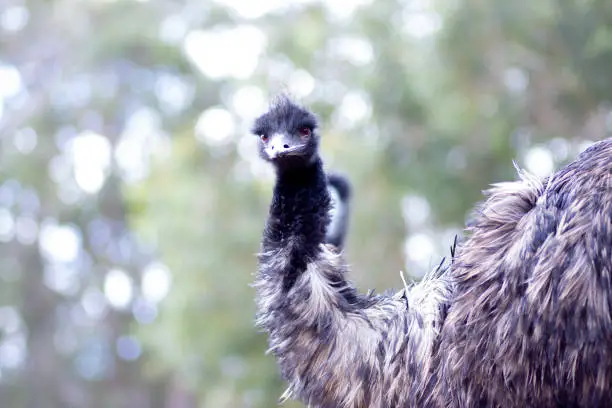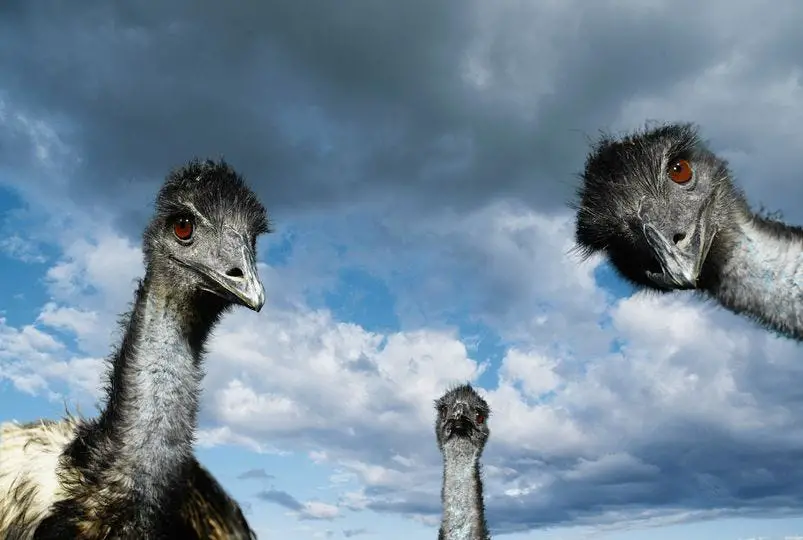Did Australia Lose a War to Emus? In the early 20th century, Australia was faced with an unusual challenge. The country was home to a large population of emus, which were causing significant damage to crops and property. The government decided to take action and declared war on the emus. However, the outcome of this conflict is often debated, with some claiming that Australia lost the war to emus.
The so-called Emu War took place in Western Australia in 1932. The government sent a group of soldiers armed with machine guns to deal with the emu problem. However, the emus proved to be elusive and difficult to shoot. The soldiers struggled to keep up with the birds and many of their shots missed their targets.

Despite the military’s best efforts, the emus continued to cause damage to crops and property. The government eventually called off the campaign, and some people interpreted this as a defeat for Australia. However, others argue that the war was never meant to be a decisive victory, but rather a means of controlling the emu population.
The aftermath of the Emu War saw the government adopt more practical measures to deal with the emus. These included building fences and offering bounties for captured emus. The population eventually stabilized, and today, emus are a common sight in many parts of Australia.
The Emu War has become a source of fascination for many people around the world. It is often cited as an example of the absurdity of war and the hubris of governments. However, it is important to remember that the war was not a formal conflict between two nations, but rather a unique situation that required a creative solution.
In conclusion, while it is true that the Australian military struggled to deal with the emu problem, it is not accurate to say that Australia lost a war to emus. The conflict was a localized response to a specific problem and was never intended to be a decisive victory. Nonetheless, the Emu War remains an intriguing footnote in Australian history and a reminder of the importance of careful planning and practical solutions.

The Emu War also raises important questions about the relationship between humans and the environment. While it is understandable that the Australian government was concerned about the damage caused by the emus, some argue that the war was a shortsighted and misguided response. Emus are an important part of Australia’s ecosystem, and their removal could have unintended consequences.
Furthermore, the Emu War highlights the limitations of military force when dealing with non-human opponents. Emus are not a conventional enemy, and their behavior is difficult to predict. The soldiers who were sent to fight them were ill-equipped to deal with the unique challenges of the situation.
Today, the Emu War is remembered primarily as a curiosity, but it also offers important lessons for policymakers and military strategists. It serves as a cautionary tale about the dangers of over-reliance on force and the need for innovative and adaptive solutions to complex problems.
In the end, the Emu War was not a defeat for Australia, but rather a reminder of the complexity and unpredictability of the natural world. While the conflict may have seemed absurd at the time, it was a necessary step in the evolution of Australia’s approach to managing its wildlife. As such, it is an important chapter in the country’s history and a valuable source of lessons for the future.
In conclusion, while the idea of Australia losing a war to emus may seem like a comical anecdote, the Emu War was a real event that had significant consequences for the country. While the conflict was ultimately unsuccessful in eradicating the emu population, it did lead to the development of more practical and sustainable solutions for managing wildlife in Australia. The Emu War also serves as a reminder of the importance of taking a nuanced and adaptive approach to complex problems, and the dangers of over-reliance on the force. Ultimately, the Emu War was not a defeat for Australia, but rather a learning experience that has helped to shape the country’s approach to wildlife management for decades to come.





